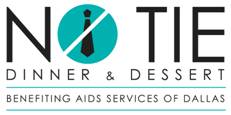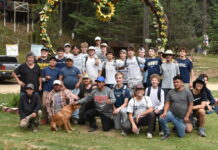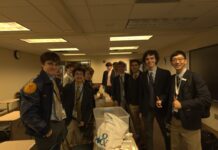HIV/AIDS is a global epidemic that stretches across nations everywhere. Over 1 million people in the United States alone live with HIV, with approximately 50,000 people diagnosed every year, and over 30,000 of these people living with HIV are diagnosed with the AIDS virus. Many organizations have been formed in order to support the endemic. These organizations raise money to help provide for people living with this burden with treatment and many other resources necessary for making these people’s lives easier.
People who suffered from HIV/AIDS in the late 1980s found themselves homeless, because they did not have the ability to secure a job or buy a house due to prejudice and discrimination against them. In 1988, AIDS Services of Dallas was formed in order to address this problem, finally allowing infected people to live dignified lives, free of judgment. AIDS Services of Dallas is a non-profit organization that owns four apartment buildings just south of Dallas in Oak Cliff. These apartments currently house 184 people in the Dallas area who are either infected by HIV/AIDS or affected by it, meaning a family member or a loved one carries the virus. ASD allows these people to have a plentiful supply of food, medicine, treatment, and housing.
AIDS Services of Dallas is supported by Jesuit because it allows students from Jesuit to volunteer weekly as part of the Senior Service on Wednesdays and permits many other opportunities that students can participate in. Jesuit students are asked to serve lunch, dinner, and engage with the people living in these apartment buildings. This engagement helps them learn, and become more aware of the potent effect this disease has on our community and the rest of the people around the world living with HIV/AIDS. Many Jesuit clubs, such as the junior organization, Interact, led by Mrs. Michele Williams and Ms. Patricia Watson, also volunteer at ASD on a regular basis, setting up fundraisers and events and serving those afflicted by the virus.
AIDS Services of Dallas is still active today in their endeavors to alleviate some of the stress of living with HIV/AIDS; however, government funding has gradually been cut over the years, leading to struggles in finding new ways to pay for their services to these people. Due to this dilemma, it has led to new fundraisers which assist organizations like AIDS Services of Dallas. One of the most prominent fundraisers in Dallas is Black Tie Dinner, a formal event that raises money for charities throughout North Texas, including AIDS Services of Dallas. Their contribution, however, does not adequately fund AIDS Services. In order to make up for its funding shortfall, AIDS Services of Dallas introduced a new fundraiser specifically for its organization, No Tie.
The annual No Tie dinner, sponsored by AIDS Services of Dallas and supported by Jesuit, was held on April 10th, 2014. ASD asks for volunteers every year to help get the task done free of charge, otherwise, ASD would have to spend hundreds to thousands of dollars just to get the fundraiser set up, money that could go towards their purpose. Jesuit students volunteered this year in order help set up for the party. They were asked to set up tables, help with food, set up the auction, and much more. With 60 volunteers and a whole day filled with hard work, Jesuit helped AIDS Services of Dallas save $8,000. Mr. Richard Perry, one of the service counselors at Jesuit, says that “when Jesuit students have an opportunity to support a fundraising event like this one, it raises questions, leading to a more spiked interest into what they’re volunteering for.” He believes that when a student serves on an indirect service project, it “inspires them to meet the people there helping and form more intimate relationships with these people.”
While organizations like AIDS Services of Dallas are fundraising and assisting the AIDS community, there is still extensive research being conducted to help those living with HIV/AIDS in the medical world. Mr. Richard Perry believes that “HIV is a disease that has become even more unfair now, because those with resources can get treatment and those without resources find themselves unable to access it, even though it’s there,” but he still believes that “there is progress being made.” The ultimate goal for research these days is to find a cure, and there have been recent instances of a “functional cure.” A functional cure is a “cure” that shows no disease progression and also results in a lack of transmission. It does not completely eradicate the disease from the body, it does, however, give scientists hope for an official, more accessible cure in the future.
The fight against HIV/AIDS persists, and we, as a community, can volunteer and serve at local organizations and events, like ASD and No Tie, eventually releasing some of the stress that accompanies HIV/AIDS and giving more hope for the future of the disease. To find out about more service opportunities offered by ASD, go to their website at http://www.aidsdallas.org/, or contact Mr. Perry or Mr. Mattacchione in the Jesuit community service counseling offices.






